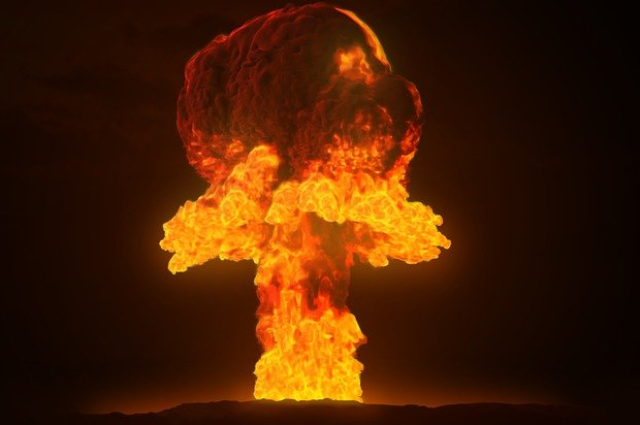
We are living in an era in which the use of advanced technology has been extremely high. But there are some demerits of technology. One of them has been the invention of nuclear bombs. This has been one of the most dangerous inventions of mankind.
We all know the consequence of its use during World War II. But even today there are almost 13000 nuclear weapons present in different corners of the world. Since the incidents in Hiroshima and Nagasaki, there have been 2000 nuclear tests. There have been efforts like Nuclear- Weapon- Free- Zones, which have tried to some extent. These efforts are continuously trying to extend world peace and reduce nuclear reserves.
The one basic aim for United Nations has also been this. Since its formation in 1946, the UN has taken various steps like they formulated a Commission to combat atomic energy-related issues. Other than that, various treaties have been signed like Treaty on the Non- Proliferation of Nuclear Weapons (NPT), Partial Test Ban Treaty (PTBT), Treaty on the Prohibition of Nuclear Weapons (TPNW), and Comprehensive Nuclear Test Ban Treaty (CTBT). In the most recent times, TPNW was implemented on 22 January 2021.
Now, if we specifically consider the main reasons for the ban, then the reasons are many:
- Nuclear weapons are deadly: If we only consider the catastrophic effects of nuclear weapons, then it is safe to say that they can be a source of the extinction of the human race.
- The actual use of nuclear weapons: If we consider the safety and security reasons for which these weapons are being created, then it can be a point of debate. The reason is that these weapons can never safeguard us from natural calamities. They can also not protect us from the adverse effects of pollution. Many other man-made natural effects like global warming are also immune to nuclear weapons.
- The high cost of manufacturing of these weapons: These weapons are being manufactured at a very high price. On the contrary, we can use that money for the welfare of the people.
- The point of mass extinction (or destruction): Nuclear weapons are one of the man-made disasters which have faced no retaliation in terms of their retention. So, it is important to take care of this fact and act accordingly.
But there are certain terms which needs to be considered before some drastic steps are taken in this direction. For example, the pressure to decrease the nuclear arsenal should not be put only on the less developed countries. It must be the equal responsibility of all the nations that have high nuclear weapon capability.
The second thing which is also needed to be considered is the re-assembly of the weapons in case of emergency. This means that if the need arises then the countries should act responsibly and take decisions appropriately. All of this must be done after proper discussion among all the superpowers.
All of the steps related to disarmament can be done with precaution. The main cautions are the issues between various states. The issues like the status of Taiwan and most recently the issues between Russia and Ukraine need to be resolved at the earliest.
There is also one more point which needs to be considered. That is the fact which depicts the actual truth of the complete eradication of nuclear weapons. It is so because we can never actually get rid of nuclear elements present around us. Today, we live in a society where electricity is being supplied by nuclear power plants. Along with that, there is also a fact of nuclear wastes which keep on increasing day by day due to various reasons.
Then there is also the risk of nuclear instability. This can happen in case the superpowers decide to cut down their nuclear arsenal. As a result, the small nations that depend on those superpowers for nuclear support can think of creating their own nuclear support system. This will be dangerous as it will result in the creation of more nuclear weapons for security reasons.
There is also another case of the creation of something more powerful to replace nuclear weapons. This will happen as nations search for something to safeguard their future. The dangers of aliens and some other unpredicted dangers can be very influential in such cases. So basically, the absence of nuclear weapons can result in an even more dangerous future.
Another aspect which is not far away is that of machines controlling our security and defence systems. As technology is progressing, the need for automation is also increasing. If a day comes when the control of a nuclear warhead is given to an A.I., then that can have devastating results. Now the question arises, which is, “how to get rid of nuclear weapons to a safe extent?”
To answer the last-mentioned question, we will have to dig deep. The first thing which needs to be done is to find a suitable replacement for nuclear materials as a source of energy. Then, the second thing is to utilize our available renewable resources more aggressively. The third thing which needs to be done is to make sure that the new source of energy is readily available to all. This last point should be done by keeping in mind the vast differences of geographical factors. There is also the factor of various economic reasons and things which could utilize these resources. Actually, the appliances and various things which we use in our daily lives should also be altered to some extent. This can result in making the things around us more future-proof and everlasting.
Ultimately, it all comes down to the fact that whether we are willing to accept the future with limited nuclear access or not. It can be challenging in the beginning. But later on, we will definitely get used to it. At last, it will be beneficial for our own future generations.
